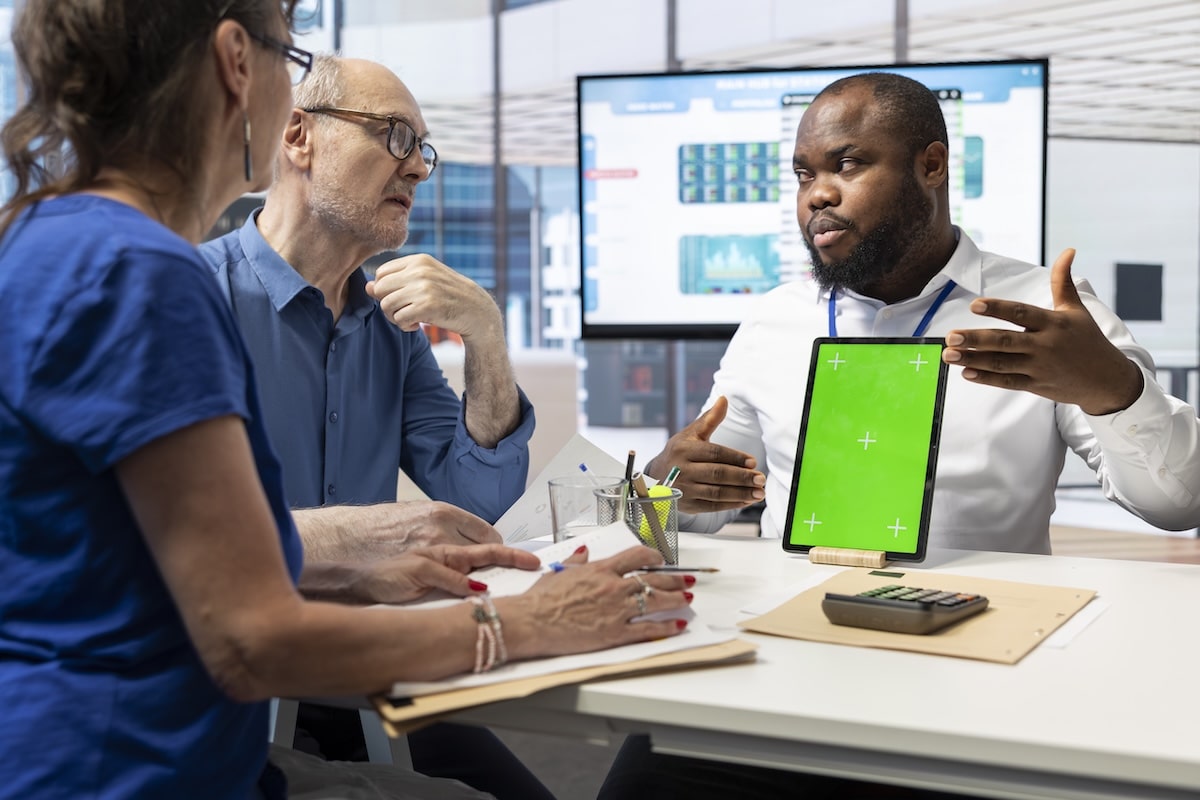Hinweis: Ich bin weder Initiator dieses Projekts noch dafür verantwortlich und repräsentiere auch nicht das BMZ. Ich versuche lediglich neutral und objektiv über dieses Thema zu informieren.
Die COVID-19-Pandemie hat nicht nur die Welt vor große gesundheitliche Herausforderungen gestellt, sondern auch die digitale Transformation beschleunigt. In diesem Kontext hat das Bundesministerium für wirtschaftliche Zusammenarbeit und Entwicklung (BMZ) den SmartDevelopmentHack ins Leben gerufen, um innovative digitale Lösungen für die globalen Herausforderungen der Pandemie zu fördern.
- 1. Audiopedia: Gesundheitsbildung durch digitale Audiolösungen
- 2. Digital Agriculture Africa: Digitale Wertschöpfungskette
- 3. Matchmaking Peru: Cloudbasierte Gesundheitslogistik
- 4. Digital Enquirer Kit: Umgang mit Desinformation
- 5. Drone and Data Aid: Gesundheitsversorgung per Drohne
- 6. Yoma – Youth Marketplace: Chancen für junge Menschen
- 7. Mbaza AI Chatbot: Barrierefreier Zugang zu Informationen
- 8. Rural Women Entrepreneurs: Stärkung von Frauen in Bangladesch
- 9. CallvsCorona: Echtzeit-Krisenkommunikation in Madagaskar
- Gemeinsame Innovation für globale Herausforderungen
Unter dem Motto „Innovation für Entwicklung“ rief der Hackathon kreative Köpfe aus aller Welt dazu auf, ihre Ideen einzureichen. Die Jury kürte neun Gewinnerteams, die mit ihren innovativen Projekten beeindruckten. Hier ein Überblick über die Gewinner und ihre Lösungen:
1. Audiopedia: Gesundheitsbildung durch digitale Audiolösungen
Region: Globaler Süden
Audiopedia bietet ein innovatives, offenes Tool, das auf lokalisierten digitalen Audioinhalten basiert. Es macht lebenswichtige Gesundheitsinformationen über solarbetriebene Audioplayer, mobile Webanwendungen und lokale WLAN-Hotspots zugänglich. Dieses Projekt ist speziell darauf ausgelegt, Informationen auch in abgelegenen Gebieten bereitzustellen, wo Zugang zu traditionellen Bildungsmöglichkeiten begrenzt ist.
2. Digital Agriculture Africa: Digitale Wertschöpfungskette
Region: Kenia, Nigeria
Dieses Projekt bietet eine „Farm-to-Fork“-Lösung, die sich auf die digitale Lebensmittelsicherheit und die Wertschöpfungskette in der Landwirtschaft konzentriert. Die Plattform funktioniert ähnlich wie ein Taxi-Buchungssystem: Konsumenten können Produkte bestellen, und Lieferfahrer bringen die Lebensmittel direkt an die Haustür. Gleichzeitig wird der direkte Kontakt reduziert, um die Verbreitung von COVID-19 zu verhindern.
3. Matchmaking Peru: Cloudbasierte Gesundheitslogistik
Region: Peru
Diese Plattform optimiert die Logistik des peruanischen Gesundheitssystems durch cloudbasierte Technologie. Sie hilft dabei, Prozesse effizienter zu gestalten und Bürgern den Zugang zu Gesundheitsdiensten zu erleichtern. Während der Pandemie wurde die Plattform ein wichtiger Bestandteil der COVID-19-Taskforce Perus.
4. Digital Enquirer Kit: Umgang mit Desinformation
Region: Global (u.a. Chile, Uganda, Ghana, Thailand)
Der Digital Enquirer Kit bietet eine Reihe von mobilen Online-Schulungen, die sich an Journalisten, Aktivisten und Menschenrechtsverteidiger richten. Ziel ist es, ihnen Werkzeuge an die Hand zu geben, um Desinformation rund um COVID-19 zu erkennen und zu bekämpfen, während sie gleichzeitig ihre eigene Sicherheit gewährleisten.
5. Drone and Data Aid: Gesundheitsversorgung per Drohne
Region: Malawi, Ruanda
Dieses Projekt setzt Drohnen ein, um medizinische Lieferketten in abgelegenen Regionen zu verbessern. Zusätzlich werden Daten gesammelt, um die Auswirkungen von COVID-19 vor und nach der Krise zu kartieren. Das Projekt umfasst auch die Schulung lokaler Fachkräfte wie Drohnenpiloten und Projektmanager, um eine nachhaltige Infrastruktur aufzubauen.
6. Yoma – Youth Marketplace: Chancen für junge Menschen
Region: Subsahara-Afrika
Yoma bietet eine digitale Plattform, die jungen Menschen dabei hilft, ihre Zukunft aktiv zu gestalten. Sie verbindet soziale Engagements, Lernmöglichkeiten und wirtschaftliche Chancen. Organisationen aus verschiedenen Sektoren können auf der Plattform Aufgaben und Projekte anbieten, an denen junge Menschen teilnehmen können, um ihre Fähigkeiten weiterzuentwickeln.
7. Mbaza AI Chatbot: Barrierefreier Zugang zu Informationen
Region: Ruanda
Mbaza ist ein KI-gestützter Chatbot, der auf jedem Telefon wertvolle Informationen über COVID-19 bereitstellt. Er ermöglicht es Bürgern, Fragen zu stellen und Bedenken direkt an die Behörden weiterzuleiten. Gleichzeitig hilft der Chatbot der Regierung, die lokale Situation besser zu verstehen und zu reagieren.
8. Rural Women Entrepreneurs: Stärkung von Frauen in Bangladesch
Region: Bangladesch
Dieses Projekt unterstützt weibliche Unternehmerinnen in ländlichen Gebieten Bangladeschs. Es stärkt ihre Kapazitäten zur Herstellung und Lieferung wichtiger Güter wie selbstgemachter Masken und Desinfektionsmittel. Zudem fördert das Projekt die Entwicklung lokaler Partnerschaften und den Aufbau widerstandsfähiger Gemeinschaften.
9. CallvsCorona: Echtzeit-Krisenkommunikation in Madagaskar
Region: Madagaskar
Dieses Projekt nutzt eine Hotline, um die madagassische Regierung und ihre Bürger während der COVID-19-Krise zu verbinden. Über diese Plattform werden Sensibilisierungsbotschaften, Präventionstipps und Handlungsempfehlungen bei Infektion verbreitet. Zudem wird die Kapazität von Gesundheitspersonal durch interaktive Sprachantworten und Fernschulungen gestärkt.
Gemeinsame Innovation für globale Herausforderungen
Die Gewinnerteams des SmartDevelopmentHack zeigen, wie vielseitig und kreativ digitale Lösungen sein können. Von der Gesundheitsversorgung über Landwirtschaft bis hin zur Stärkung von Frauen und Jugendlichen – jedes Projekt adressiert konkrete Herausforderungen der COVID-19-Pandemie und darüber hinaus.
Durch die Kombination von Technologie und Entwicklungsarbeit schaffen die Teams nicht nur kurzfristige Lösungen, sondern legen auch den Grundstein für nachhaltige und widerstandsfähige Gemeinschaften. Der SmartDevelopmentHack ist ein Beispiel dafür, wie Zusammenarbeit und Innovation dazu beitragen können, globale Probleme zu lösen und eine gerechtere, vernetzte Welt zu schaffen.
Info: Viele weitere spannende Artikel finden Sie auch auf unserer Startseite.
- Wärmeleitfolie für LEDs: Lebensdauer verlängern durch bessere Thermik - 17. Februar 2026
- Support-Prozesse digitalisieren: Ticketing als Basis für skalierbaren Kundenservice - 4. Februar 2026
- Windows 11: Die 10 häufigsten Migrationsfehler - 3. Februar 2026





